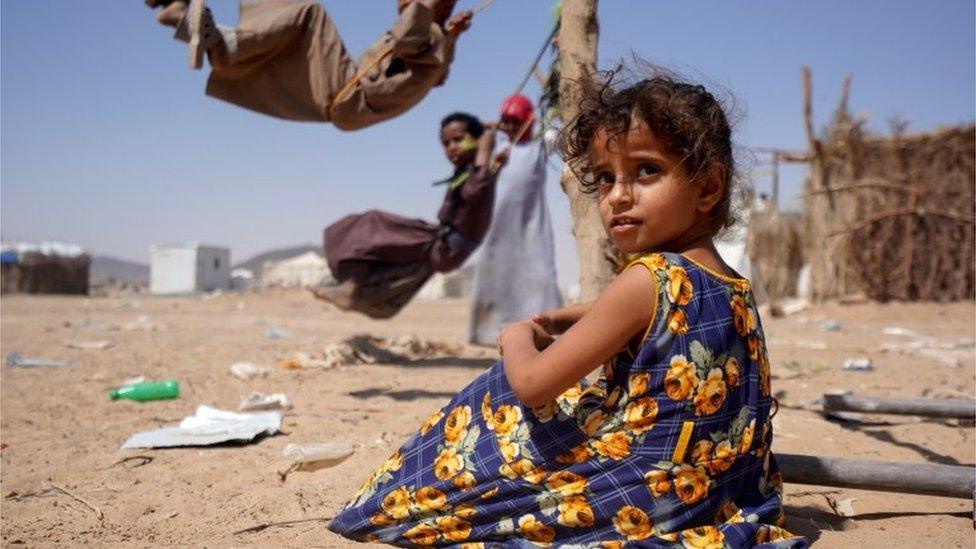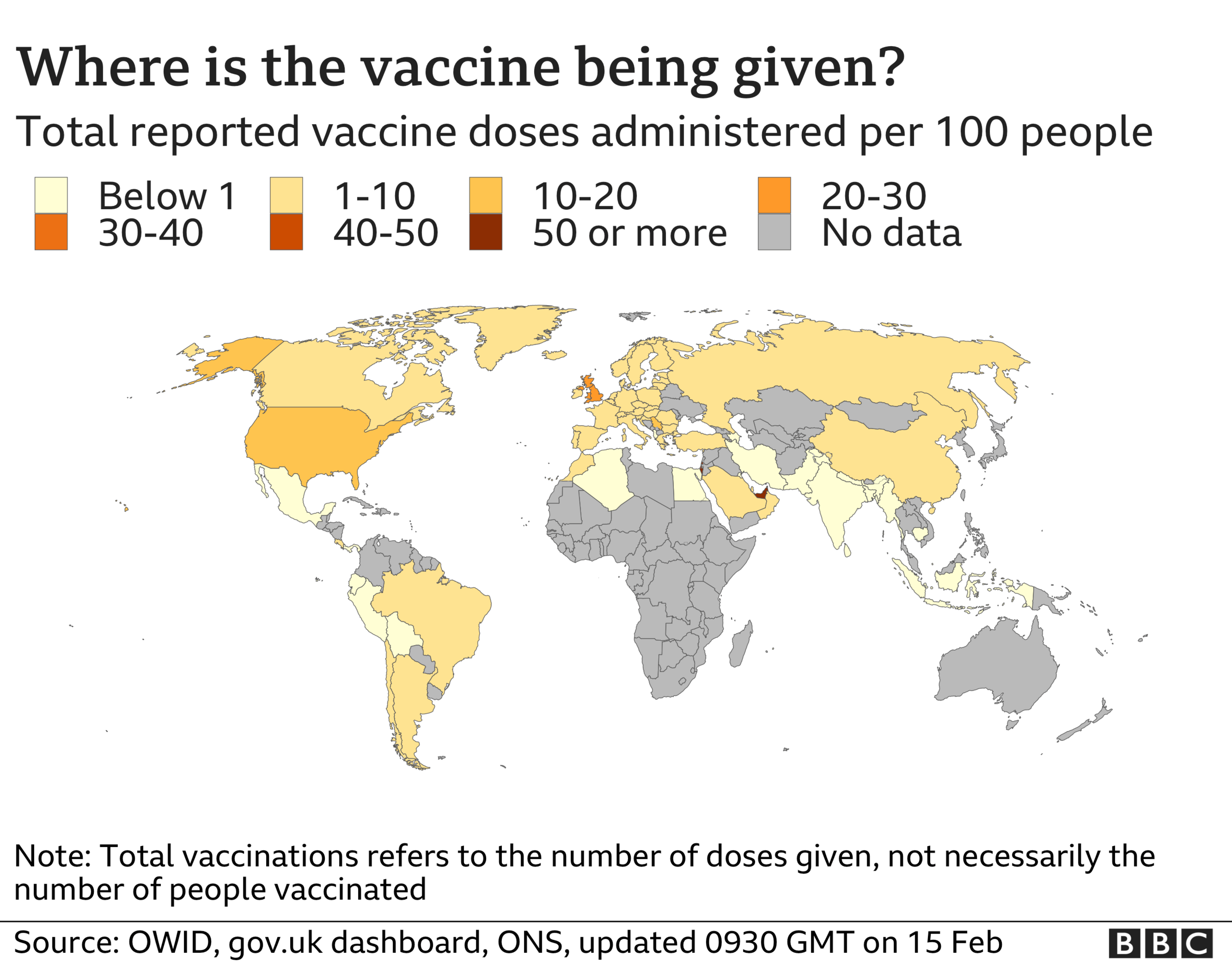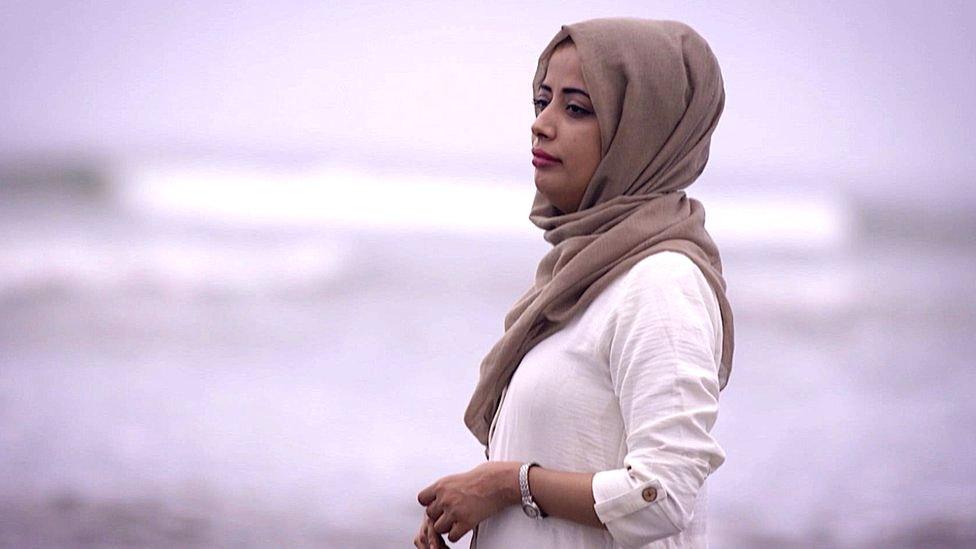Covid: Dominic Raab calls for global ceasefires to allow for vaccinations
- Published

Foreign Secretary Dominic Raab has called for ceasefires to allow those living in war-torn areas to get vaccinated.
He will also use a meeting of the UN Security Council to encourage other countries to provide more vaccine support to vulnerable areas.
The government says more than 160 million people in places such as Yemen could miss out on vaccines due to war.
Oxfam said the UK needed to help "unblock" the supply system.
Sam Nadal - head of policy for the charity - welcomed the call for ceasefires but said the government should insist that vaccine information is "no longer treated as the private property of a handful of pharmaceutical corporations but shared with qualified manufacturers around the world, so that production can be urgently scaled up."
"Without a massive increase in vaccine production, countries enduring conflict will not get enough doses of Covid-19 vaccines for everyone that needs one," he said.
On Wednesday, Mr Raab will chair a meeting of the UN Security Council where he is expected to to warn that failing to support global vaccinations will increase the risk of new variants, and new waves of the virus, emerging.
In addition to calling for ceasefires, he will stress the importance of overcoming logistical barriers to vaccine delivery such as storage and supply lines.
And he wants the international community to be able to to monitor deliveries and the extent to which groups are abiding by ceasefire terms.
The foreign secretary will also push for more funding for the UN, the World Health Organisation and the COVAX Advance Market Commitment - a global scheme aimed at improving access to the vaccine.
The government says it is one of the largest contributors to the initiative having donated £548m.
Speaking to the BBC, Mr Raab said: "We should be putting our shoulder to the wheel," he said, adding: "This is what global Britain is about."
Prime Minister Boris Johnson is expected to set out more details on vaccinating refugees and people in conflict areas at a virtual meeting of the G7 leaders on Friday.
Earlier this month, the head of the World Health Organization said unequal vaccine supplies across the world was leading to a "catastrophic moral failure".
Tedros Adhanom Ghebreyesus argued that it was not fair for healthy people in richer nations to get injections before vulnerable people in poorer states.

Vaccination ceasefires have been implemented in the past, including in 2000 when Afghanistan's warring sides paused fighting to allow the UN to immunize children against polio.
The UK government has now expressed particular concern about Yemen, Somalia, South Sudan and Ethiopia being able to roll out the vaccine.
In Ethiopia, conflict between the government and regional forces started in November last year and has led to 52,000 deaths and 60,000 seeking refuge in neighbouring Sudan.
And in Yemen, a seven-year battle between the UK-backed government and Houthi rebels has left millions on the brink of starvation.
Labour's shadow foreign secretary Lisa Nandy said Mr Rabb was "keen to talk about the £100m the UK is providing to mitigate the humanitarian crisis in Yemen" but "far less keen to discuss the £5.3bn in arms sales to Saudi Arabia that sustain the conflict".
Related topics
- Published18 January 2021
